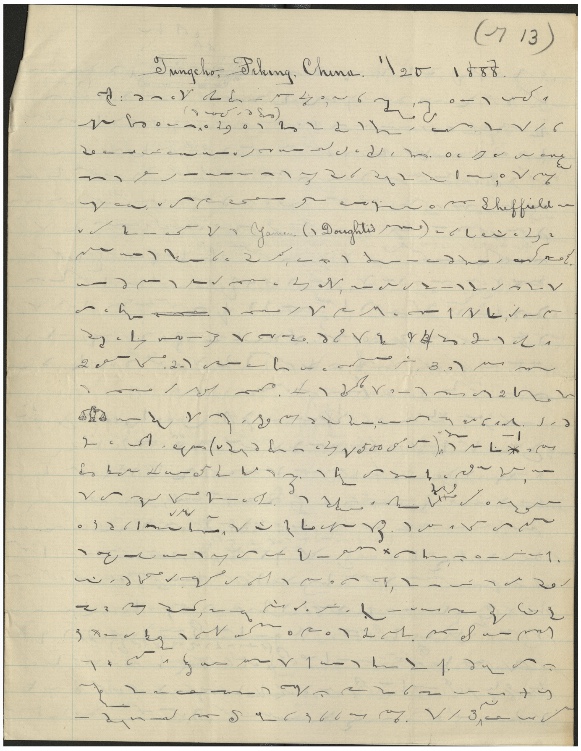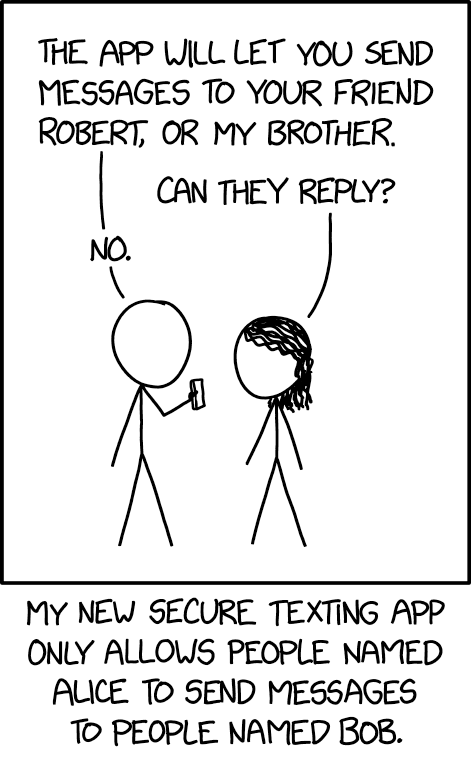Archive for October, 2022
A B C (D E)
Today's xkcd:
Mouseover title: "WARNING: PEOPLE NAMED EVE ARE PROHIBITED FROM INSTALLING THIS APP!"
Read the rest of this entry »
Kids' song: "Let's do nucleic acid"
The subtitles explain what's going on:
https://www.youtube.com/watch?v=JkHaQBHhz88
Read the rest of this entry »
Ukrainian at the edge
The war drags on, and once again one wonders how different Ukraine is from Russia, Ukrainian from Russian. This superb article will help us get a handle on what the issues at stake are:
"A short history of language in Ukraine"
Norman Davies, Spectator (2 October 2022)
The article is so richly illuminating and timely that it deserves to be quoted in extenso:
After six months of war in Ukraine, most observers agree that the roots of Russian aggression lie in the country’s deep-rooted attitudes to culture and history. In line with Russia’s nationalist traditions, Putin denies any place for a separate Ukrainian identity.
The Ukrainians, in contrast, see themselves as a proud nation with their own history, culture, centuries long struggle for independence, and, of course, language. And while Ukrainian has been dismissed as a dialect of Russian in Moscow, it in fact has a long history – and is very much a language in its own right.
That independence can be seen in the genesis of the word ‘Ukraine’ itself. In most Slavonic languages, the letter ‘U’ – and written in Cyrillic as У – is a preposition of location; according to context it can be translated as ‘in’, ’on’ ‘at’ or ‘near’, and it is followed by nouns in the genitive case. In Ukrainian, the word Kray means ‘edge’ (although in Russian it means ‘land’ or ‘country’). So ‘U Krayu’ stands for ‘At the Edge’, and Ukraina for ‘the Land on the Edge’ or ‘Borderland’. It is very similar to the American idea of the ‘Frontier’.
Read the rest of this entry »
The toilet brush enigma
This is one of the thorniest, orneriest Chinglish puzzles I've ever been confronted with.
Confused by this category of toilet brush. Can @LanguageLog illuminate what’s happened here? pic.twitter.com/lHaqM3OD3q
— Henry Hitchings (@henryhitchings) October 26, 2022
Read the rest of this entry »
Unknown language #14
Here is the first page of a letter sent from China (Tongzhou, Beijing) to the US (Trenton, NJ) by a missionary in 1888. The missionary’s name is James Ingram (1858-1934). My colleagues in China are very interested in what the letter says, but they cannot read the script.

(credit: Yale Divinity Library)
Read the rest of this entry »
Words: Too many? Too few?
In Dinosaur Comics for 10/17/2022, T-Rex seems to encounter a lexicographical problem:
Mouseover title: "i'll be communicating entirely through glances and MAYBE raised eyebrows from now on"
Archive description: "words were a mistake, an error, a blunder, a blooper, a fault, a folly, a gaffe, an oversight, a misjudgment, a slip-up, a mix-up, a trip-up, a series of errata,"
Read the rest of this entry »
Scot-free
Next time you hear or use the expression "scot-free", don't think that it has anything to do with Scots language or Scot people. I have always avoided using this expression because I didn't want to disparage a whole people. But "scot-free" is such a useful phrase that I wished I could use it with a good conscience. So finally I looked it up and found that it has a completely different derivation from that of the name of the language and the people.
(colloquial) Without consequences or penalties, to go free without payment.
-
-
- Synonym: beat the rap
-
to get off scot-free
- (archaic) Free of scot, free of tax.
-
From Middle English scotfre, from Old English scotfrēo (“scot-free; exempt from royal tax or imposts”), equivalent to scot (“payment; contribution; fine”) + -free.
(AH Dict. 2016 5th ed.)
Read the rest of this entry »
Today I learned that concolic …
… doesn't mean something like "having a shared case of colitis" (which was my first guess), but rather, as Wikipedia explains:
Concolic testing (a portmanteau of concrete and symbolic) is a hybrid software verification technique that performs symbolic execution, a classical technique that treats program variables as symbolic variables, along a concrete execution (testing on particular inputs) path. Symbolic execution is used in conjunction with an automated theorem prover or constraint solver based on constraint logic programming to generate new concrete inputs (test cases) with the aim of maximizing code coverage. Its main focus is finding bugs in real-world software, rather than demonstrating program correctness.
Read the rest of this entry »
Greek argumentation: "Let's go back to the beginning"
The first time I read Zhuang Zi's (ca. 4th c. BC) debate with Hui Zi (370-310) about "The happiness of fish", when I got near the end I had an epiphany. I felt like I was reading a debate between two Greek philosophers. Here it is:
Zhuāng Zi yǔ Huì Zi yóu yú Háo liáng zhī shàng. Zhuāng Zi yuē: "Shūyú chū yóu cóngróng, shì yú lè yě." Huì Zi yuē: "Zǐ fēi yú, ān zhī yú zhī lè?" Zhuāng Zi yuē: "Zǐ fēi wǒ, ān zhī wǒ bù zhī yú zhī lè?" Huì Zi yuē: "Wǒ fēi zǐ, gù bù zhī zǐ yǐ; zǐ gù fēi yú yě, zǐ zhī bù zhī yú zhī lè quán yǐ." Zhuāng Zi yuē: "Qǐng xún qí běn. Zǐ yuē 'Rǔ ān zhī yú lè' yún zhě, jì yǐ zhī wú zhī zhī ér wèn wǒ, wǒ zhī zhī Háo shàng yě."
莊子與惠子遊於濠梁之上。莊子曰:「儵魚出遊從容,是魚樂也。」惠子曰:「子非魚,安知魚之樂?」莊子曰:「子非我,安知我不知魚之樂?」惠子曰:「我非子,固不知子矣;子固非魚也,子之不知魚之樂全矣。」莊子曰:「請循其本。子曰『汝安知魚樂』云者,既已知吾知之而問我,我知之濠上也。」 (source: 17.13)
Master Chuang and Master Hui were strolling across the bridge over the Hao River. "The minnows have come out and are swimming so leisurely," said Master Chuang. "This is the joy of fishes."
"You're not a fish," said Master Hui. "How do you know what the joy of fishes is?"
"You're not me," said Master Chuang, "so how do you know that I don't know what the joy of fishes is?"
"I'm not you," said Master Hui, "so I certainly do not know what you do. But you're certainly not a fish, so it is irrefutable that you do not know what the joy of fishes is."
"Let's go back to where we started," said Master Chuang. "When you said, 'How* do you know what the joy of fishes is?' you asked me because you already knew that I knew. I know it by strolling over the Hao."
Read the rest of this entry »
Spectral slices of overtone singing, animated
As part of my on-going exploration of the many ways in which F0 is not pitch and pitch is not F0, I did a little demo/experiment with a sample of Anna-Maria Hefele's "Polyphonic Overtone Singing" video:
Read the rest of this entry »
Where did all the Boston "r's" go? Beijing
This one is a bit long (6:15), but the comedian is so fantastic that I couldn't stop watching until the very end, which is like a linguistic analog to the conclusion of a fireworks show. With good subtitles in English and Mandarin.
Read the rest of this entry »
Eye Dialectsk
The term "eye dialect" has come to cover a range of non-standard spellings. At one end, we have a non-standard representation of a totally standard pronunciation, like "wuz" for "was" — and that's how the phrase's inventor, George Philip Krapp, meant "eye dialect" to be used:
The impression of popular speech is easily produced by a sprinkling of such forms as ain't, for isn't, done for did, them for those, and similar grammatical improprieties. This impression is often assisted by what may be termed "eye dialect," in which the convention violated is one of the eye, not the ear. Thus a dialect writer often spells a word like front as frunt, or face as fase, or picture as pictsher, not because he intends to indicate here a genuine difference of pronunciation, but the spelling is merely a friendly nudge to the reader, a knowing look which establishes a sympathetic sense of superiority between the author and reader as contrasted with the humble speaker of dialect.
It's natural to extend the phrase to cover representations of contextual reductions that are also entirely standard, like "ta" for "to" in a phrase like "went ta town", representing the pronunciation [tə]. American, at least, would always say it that way — it would be weird to say [wɛnt tu tɐʊn], unless some special context motivated that hyperarticulation.
And there's a further common extension, to things like "oi" or "ah" for "I" — regional, ethic, or class pronunciations.
Read the rest of this entry »


